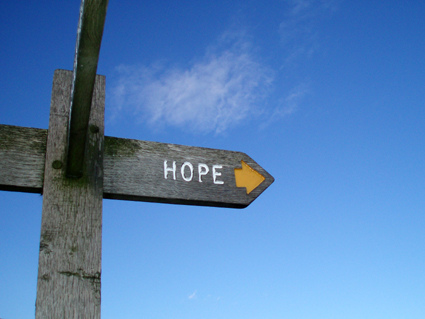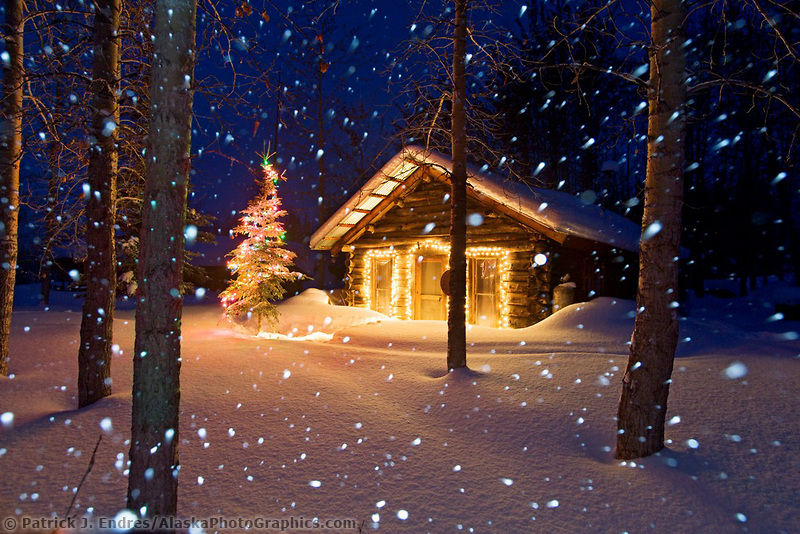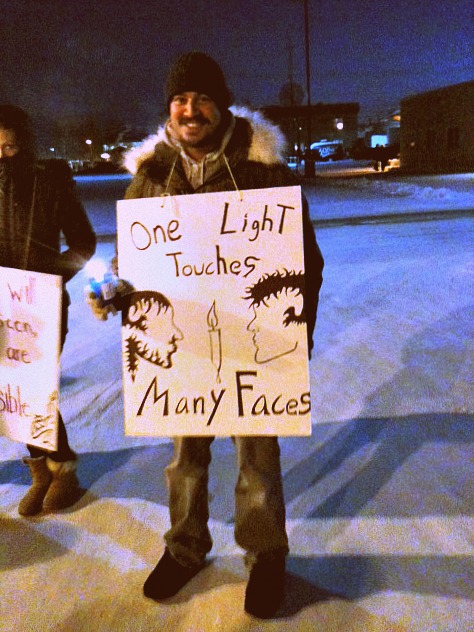
How did you get here?
October 19, 2012
New Beginnings
January 2, 2013November is National Youth Homelessness Awareness Month, and yet, in Fairbanks, many of us have no reference point to understand youth homelessness in Interior Alaska. I sat down with a handful of Interior youth and asked them about their experiences of being homeless as a young person here in Fairbanks.
Days start harshly.
“Usually I wake up in a frozen car, and just try to warm up.” They run the car all night long for the heat, but frequently the gas runs out and they wake to the freezing cold. The car doesn’t run, and none of them have licenses, but “that doesn’t matter, its a place to sleep,” they say.
“I’d recently become the owner of a car,” another young man told me, “and it was missing windows and I had no insurance, but it was better than anything else. We’d throw blankets over the top of the car to keep in the heat. It was so cold, sleeping in the back of the car. We’d snuggle up for warmth. I’d wake up in the morning so cold I couldn’t move. The first thing you think about is how to get warm, how to stay warm all day.”
Days are long.
Winter days are longer. “I’d walk around all day, every day. All day, every day. You’ve got to keep moving, you know, because when you stop moving, that’s when you get cold.” He tells me that having a good backpack is paramount – backpacks keep you warm, weight on your back keeps you warm. Heavier backpacks are better, because then you’re working harder to walk, which means you’re staying warmer.
Quality sleep is always a problem.
“Last night I slept on a friend’s couch. I didn’t get much sleep, because his roommate came home and found us on the floor and couch, and he hadn’t been told we were gonna be there. Middle of the night, and I heard him go off about us being there. I couldn’t sleep through that. They didn’t kick us out till morning, but I didn’t really sleep.”
“Yeah, I don’t get much sleep. There are seven of us, in a one bedroom dry cabin. Two in one bedroom, two in the loft, and three in the living room. Someone is always in a fight with someone else. We don’t have a car, so we have to walk forty five minutes and carry as much water as we can. But I take showers at the university for free. We’re not on the bus line, so a lot of our money goes towards getting a cab from the bus stop to our house – seven dollars – when we have groceries or it’s too cold to walk.”
It is difficult to find a place to sleep as a youth on your own.
“We’re trying to get an apartment.”
“Someplace warm, someplace dependable?” I ask.
“Warm. Having someplace warm to go – that’s what’s most important. I can live without dependable. I can make my own dependable. Warm is what matters.”
He’s 17. He can’t rent an apartment, and none of the youth he lives with are over 21 – he tells me they have trouble even getting a hotel room. When they can afford it.
Transiency – moving from place to place, never having a permanent place, is a theme.
“Before [I was living in the car] I was staying at one of my friend’s house. Before that another friend’s. This summer we were camping.”
“It’s temporary,” one young woman emphasizes, “that’s what people don’t understand. I’m living there, but my name isn’t on the lease. I’m not supposed to be there. If anyone finds out I’m living there, or she doesn’t want us there anymore, we’re gone. It’s only temporary.”
“It’s like – it’s October, and you’re sleeping in the graveyard or in parks, because no one will mess with you there. Its rock bottom. Its horrible.”
I ask them how they get by. Food stamps help, they say. So do food boxes. “I have a job – but I’m sick of working at food places. My dream job – anywhere but restaurants.” “I worked this summer at the state fair. It was great, I’m a really hard worker and it was a lot of fun. I camped out there and the vendors usually fed us at the end of the day, because they knew how hard we worked.” The youth barter or beg, when they have to. “I’m pretty good at getting what I need.”
Life is hard for youth, if you’re on the streets of Fairbanks, but these young people are incredibly creative and resilient. They don’t choose this life lightly – they choose it only when they feel they have no other option. Some don’t choose it at all. Many youth have run away from home, facing conflict or crisis that makes them feel that returning home is truly not an option. Many of our homeless youth are not runaways at all – but are kicked out of home, abandoned, or fleeing danger, dysfunction and neglect in the home. These stories remind us that, however many youth there may be, homeless and on their own in Fairbanks, they are each facing challenges no child should have to.
This winter Fairbanks Youth Advocates will host a temporary emergency shelter for youth, in partnership with First Presbyterian Church of Fairbanks. They will be providing a safe space for youth to sleep at night, and are actively seeking volunteers willing to commit to one night a month, or one evening or morning a week to assist staff in providing a safe place for youth.
To learn more about drop in services for homeless youth, contact Fairbanks Counseling and Adoption’s Street Outreach and Advocacy Program at 374-9913, and to apply to volunteer or seek information about the youth shelter, contact Fairbanks Youth Advocates at 328-9949 or visit www.FairbanksYouthAdvocates.org





